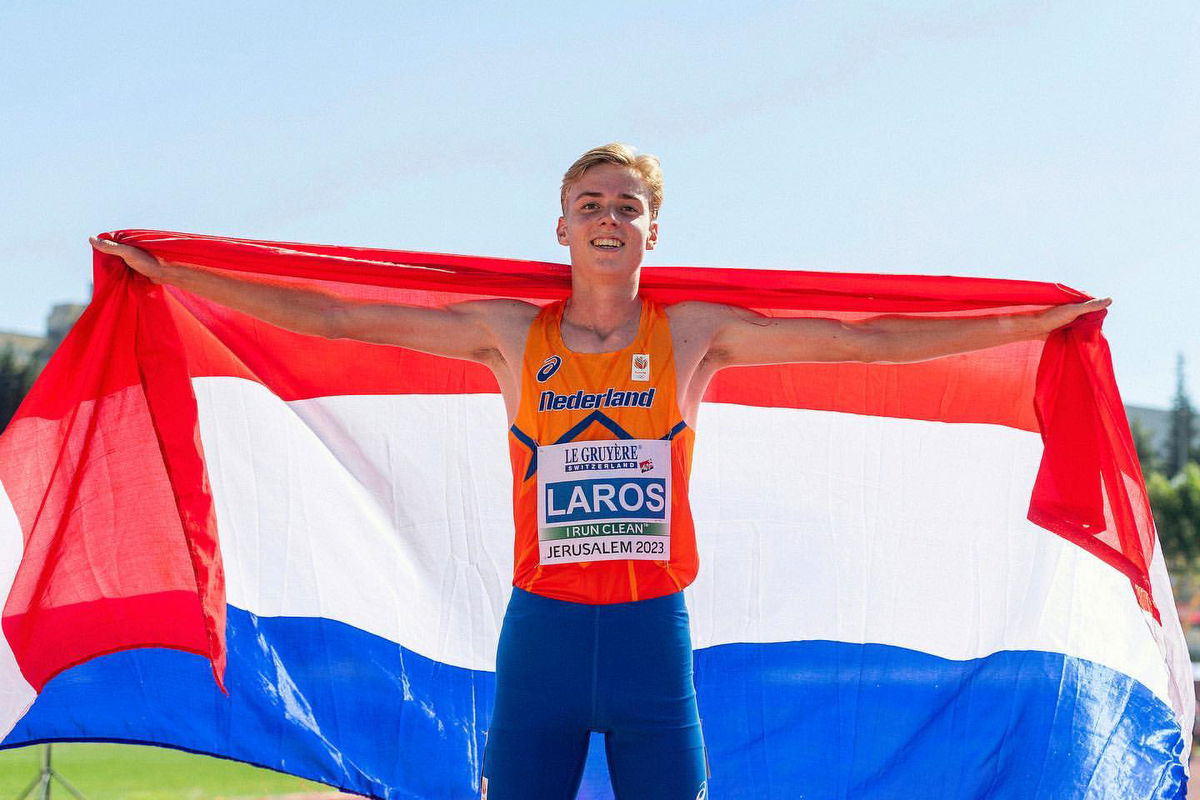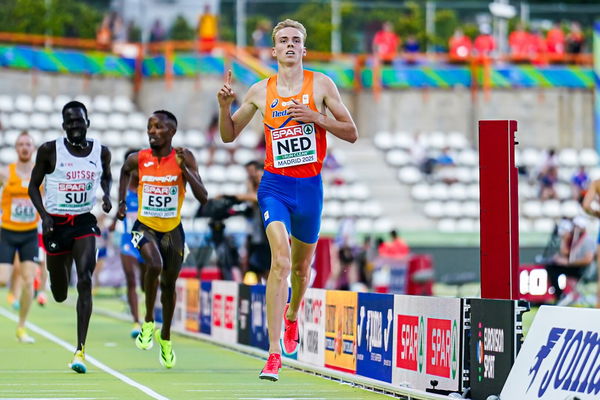
Imago
Niels Laros (Image Credit: Instagram/@niels.laros)

Imago
Niels Laros (Image Credit: Instagram/@niels.laros)
Niels Laros, the Dutch prodigy once hailed for eclipsing Jakob Ingebrigtsen’s teenage records, is no longer a rising name. Rather, he is a fully established force. At just 20, he has already competed in the Olympic Games, where he placed sixth in the 1500m final at Paris 2024 with a European U20 record of 3:29.54. He is the current world U20 record holder in the 1000m (2:14.39) and owns European U20 bests in the 1500m and the mile. In 2022, he dismantled Ingebrigtsen’s longstanding U18 records in the 1500m and 3000m. He has conquered the European Cross-Country Championships, claimed the road 5km Dutch and U20 record in Monaco, and set the indoor 3000m national record in Liévin. But now, Laros has rewritten his own narrative, defeating America’s best in their own arena, in a finish that demands global attention!
Watch What’s Trending Now!
At the European Athletics Team Championships in Madrid this June, Laros opened his 2025 outdoor campaign with authority. In the men’s 5000m, he tactfully held back through a measured pace before launching a devastating final lap. Clocking a 52.31 over the last 400 meters, he surged past Spain’s Thierry Ndikumwenayo and pulled away decisively to win in 13:45.36. That race marked Laros’s shift from chasing times to beating world-class competition. And now in Eugene, Oregon, at the Prefontaine Classic, that version fully emerged.
ADVERTISEMENT
Entering the Bowerman Mile’s home stretch several meters behind Yared Nuguse, Laros threaded an impossibly tight gap on the inside, charging forward, and leaning at the line to win by 0.01 seconds in 3:45.94, a national record, European U23 record, and the seventh-fastest mile in history.
This win was not merely a personal milestone. It marked the moment Laros transcended youth labels and developmental praise. He beat Grant Fisher, Cole Hocker, and Nuguse, all seasoned American professionals, with a composure that belied his age. The Bowerman Mile is among the most prestigious races on the calendar. To claim it from behind, on foreign soil, in the final stride, is the kind of statement that changes careers. Laros did not ride on reputation. He seized it in real time.
ADVERTISEMENT
NIELS LAROS JUST PULLED OFF ONE OF THE WILDEST WINS YOU’LL EVER SEE!!! Several meters back coming into the home straight, the young Dutchman reeled in a fading Yared Nuguse at the line to win the Bowerman Mile in 3:45.94 to Nuguse’s 3:45.95.
1 – Niels Laros 🇳🇱 – 3:45.94
2 -… pic.twitter.com/1CKhGNHilr— Chris Chavez (@ChrisChavez) July 5, 2025
The most striking element of Laros’s progression is his range. Indoors, he ran 7:29.49 over 3000m this February. On the roads, he ran a 13:26 5km in Monaco. He has collected titles in cross country, medals on the track, and records from the 800m through 5000m. At no point has his racing relied on circumstance—his tactics are deliberate, his pacing controlled, and his closing speed increasingly unanswerable.
ADVERTISEMENT
Niels Laros is no longer just the teenager who broke Ingebrigtsen’s records. He is the athlete American milers now trail at the line. And what adds more color to his already shining career is the marks he has left on the grand stages while representing his country.
ADVERTISEMENT
Is Niels Laros already the future of middle-distance running?
In a sport where precocity is often fleeting and expectations unrelenting, Niels Laros has demonstrated a rare quality. That is the ability to improve under pressure without veering off course. At only twenty years of age, he has advanced from promise to presence, establishing a credible foothold on the international stage. His recent victory at the 2025 Prefontaine Classic, where he outpaced established names such as Yared Nuguse, Grant Fisher, and Cole Hocker, suggests more than momentum. His win is like a tale of the disciplined rise of a contender who is not waiting for an opportunity to arrive politely.

Imago
Niels Laros (Image Credit: Instagram/@niels.laros)
Laros’s progression has not been sudden, nor has it relied on theatrics. In Budapest, he finished tenth in the world, later remarking, “Proud of what I showed in my first world championships. From trying to get out of the heats to putting myself in a position for a medal in the final.” That race yielded a national record of 3:31.25, but more importantly, it offered evidence of an athlete learning to race with purpose. By the time the Paris Olympics arrived, he had stripped away hesitation, running 3:29.54 and finishing sixth. “A dream come true representing my country on the biggest stage in the world,” he wrote, underscoring a shift in both self-belief and competitive maturity.
ADVERTISEMENT
His Paris performance, measured and clean, was followed less than a year later by the Prefontaine breakthrough. It was not a fluke nor an overreach. He credited those who shaped his path, thanking coach Tom Lewandowski and physio Javier Gorriz “for always having my back and making me the best athlete and person possible.” The sentiment, while generous, is telling. Laros’s ascent is not merely athletic but is indeed careful and quietly assertive.
ADVERTISEMENT
ADVERTISEMENT
ADVERTISEMENT
ADVERTISEMENT